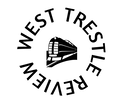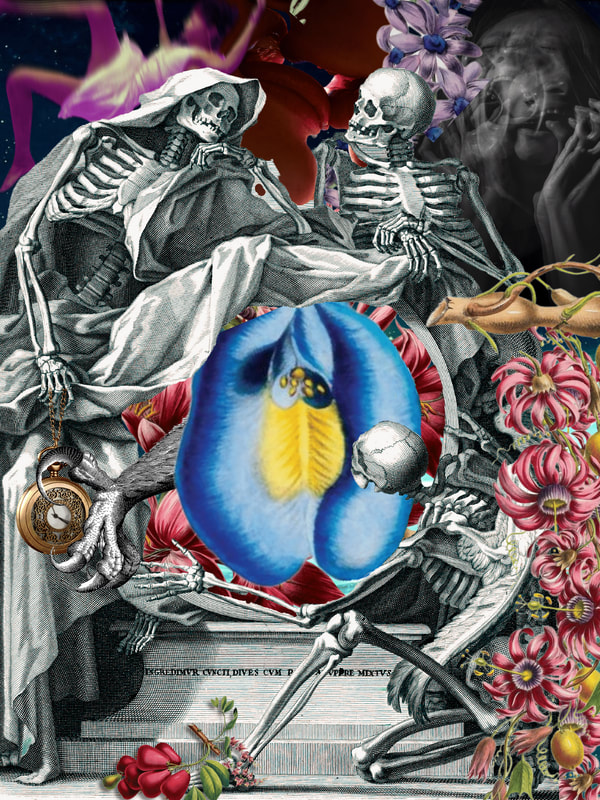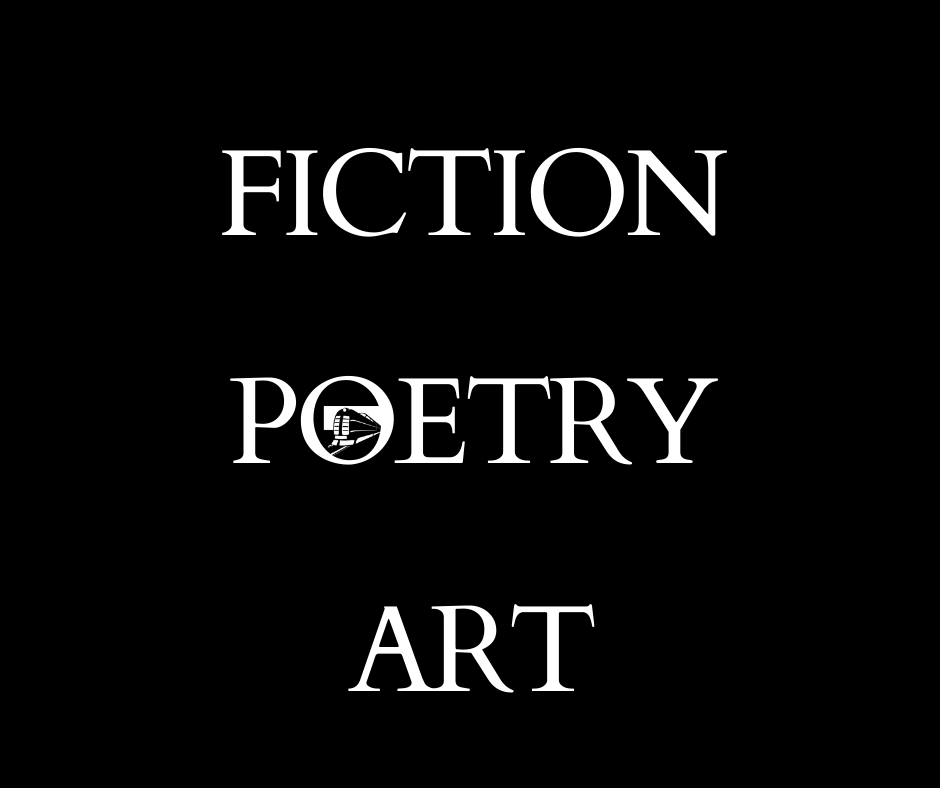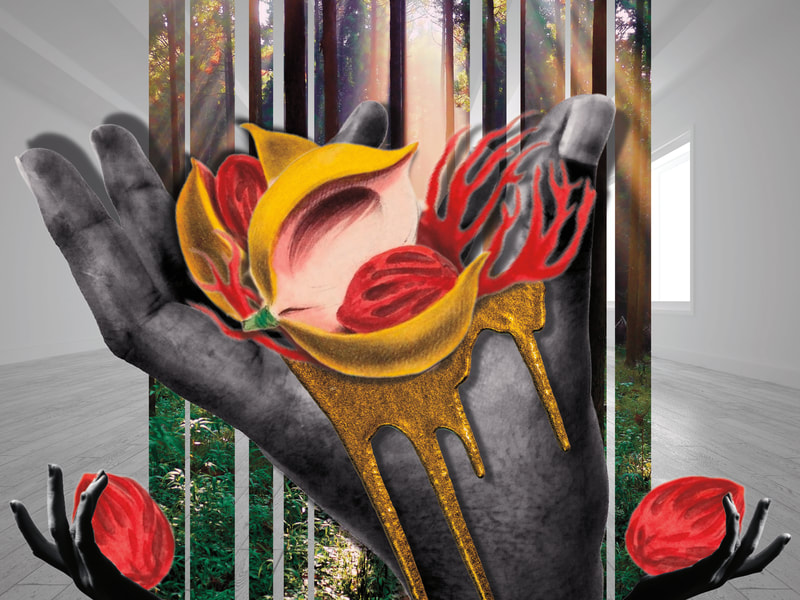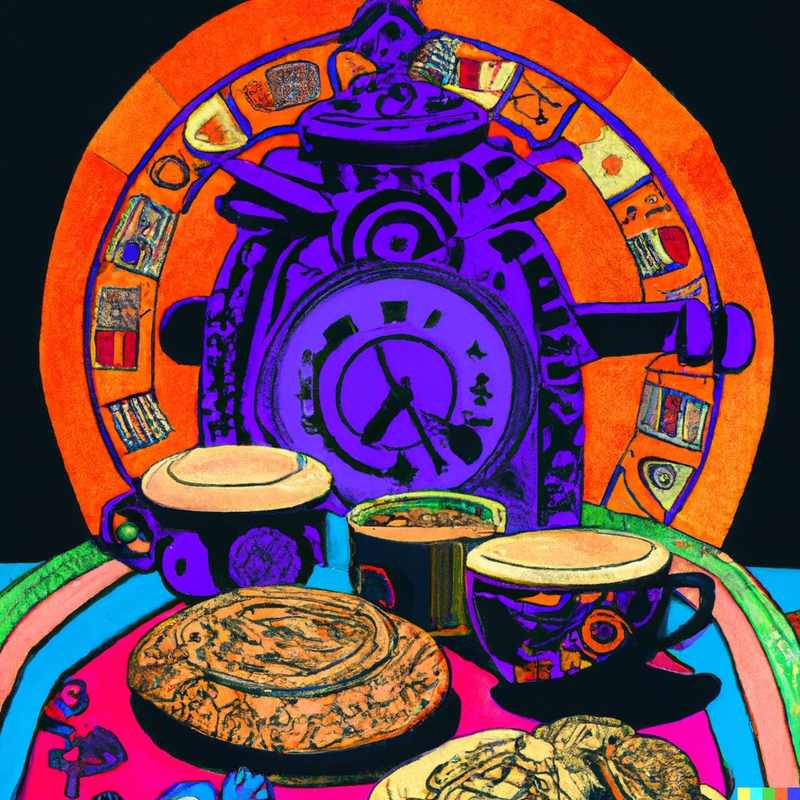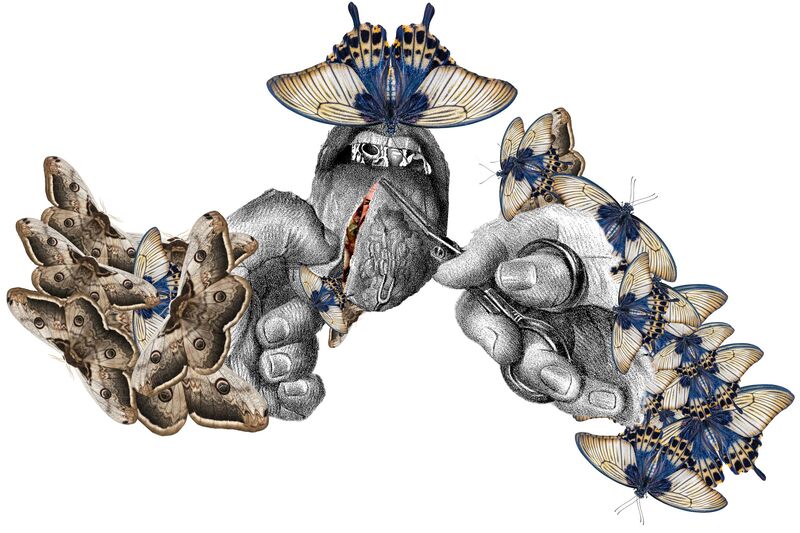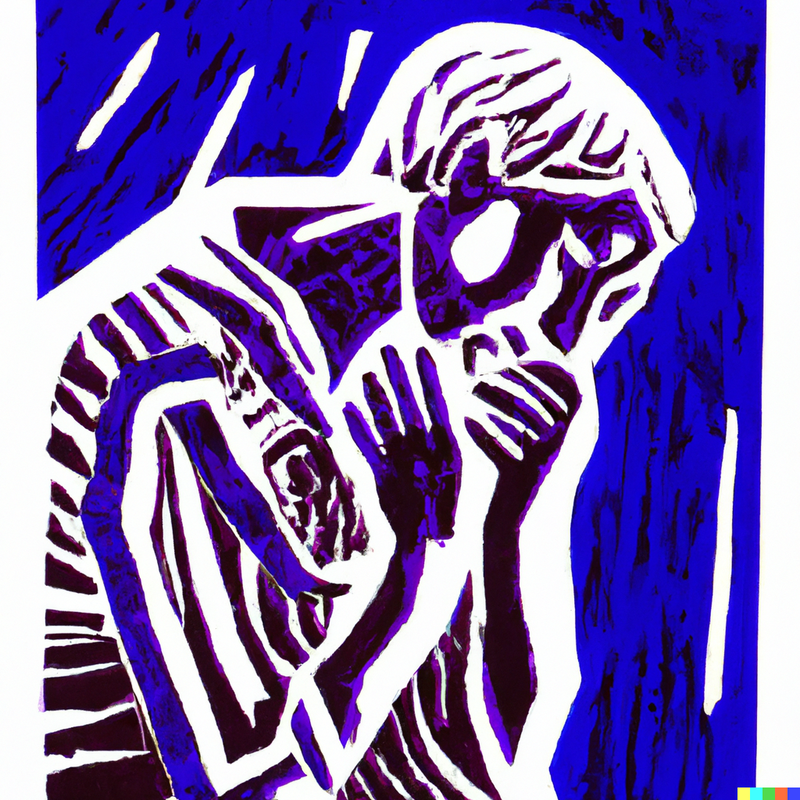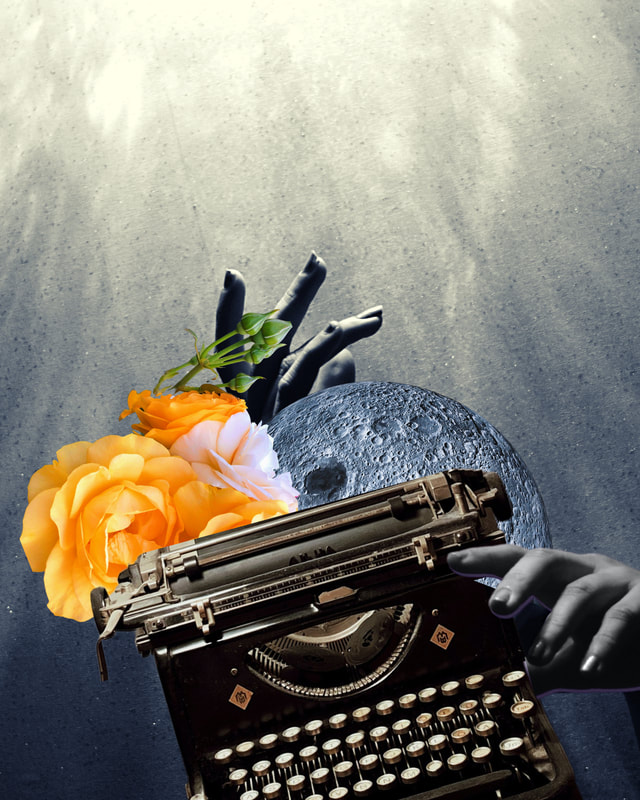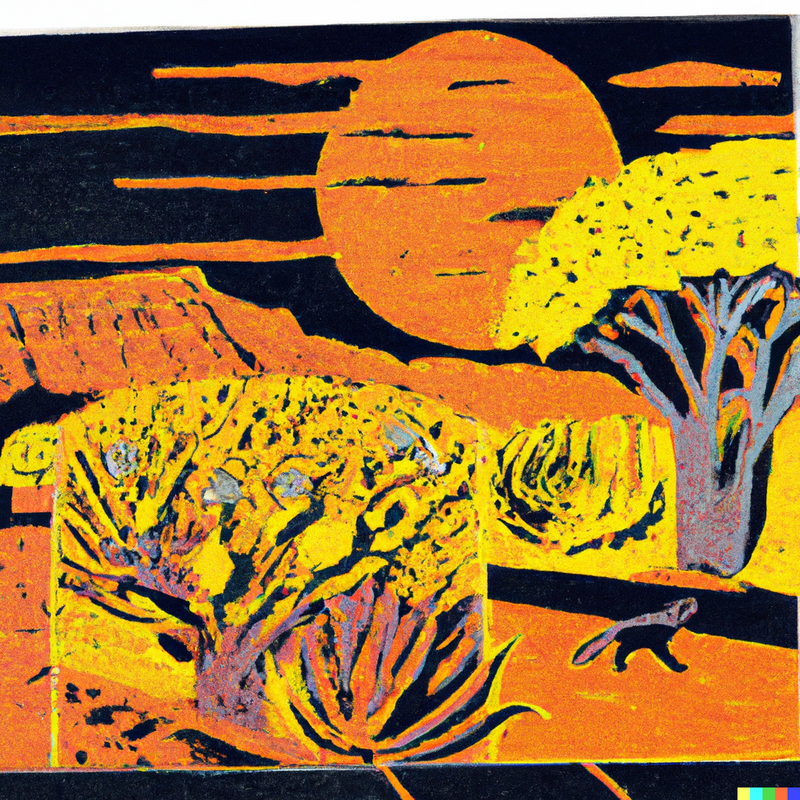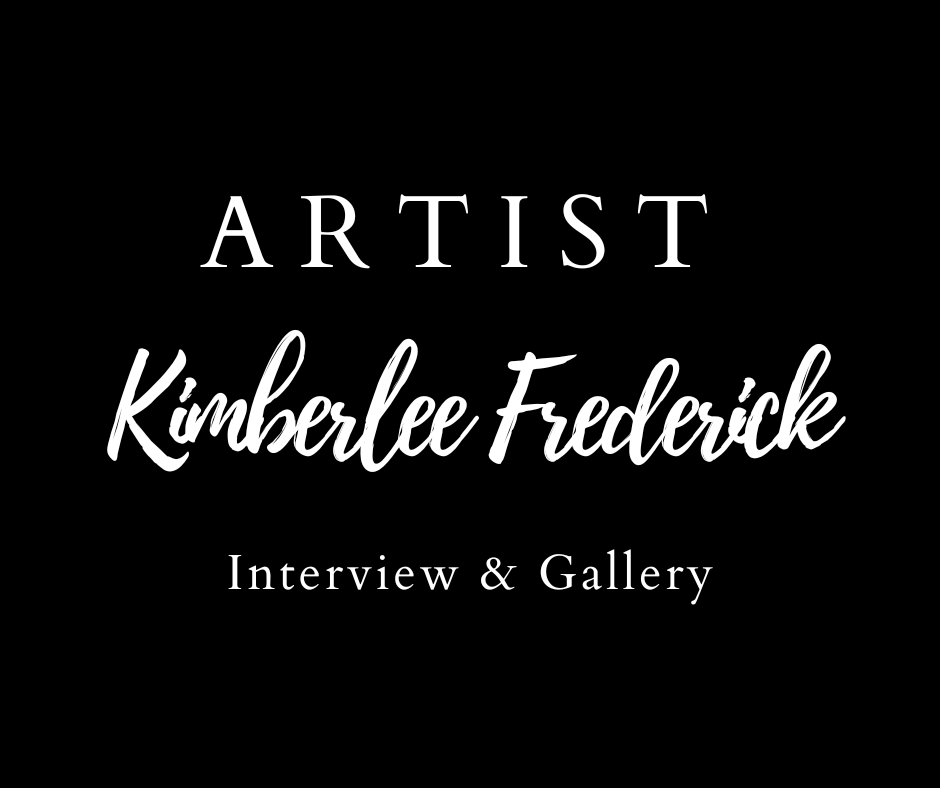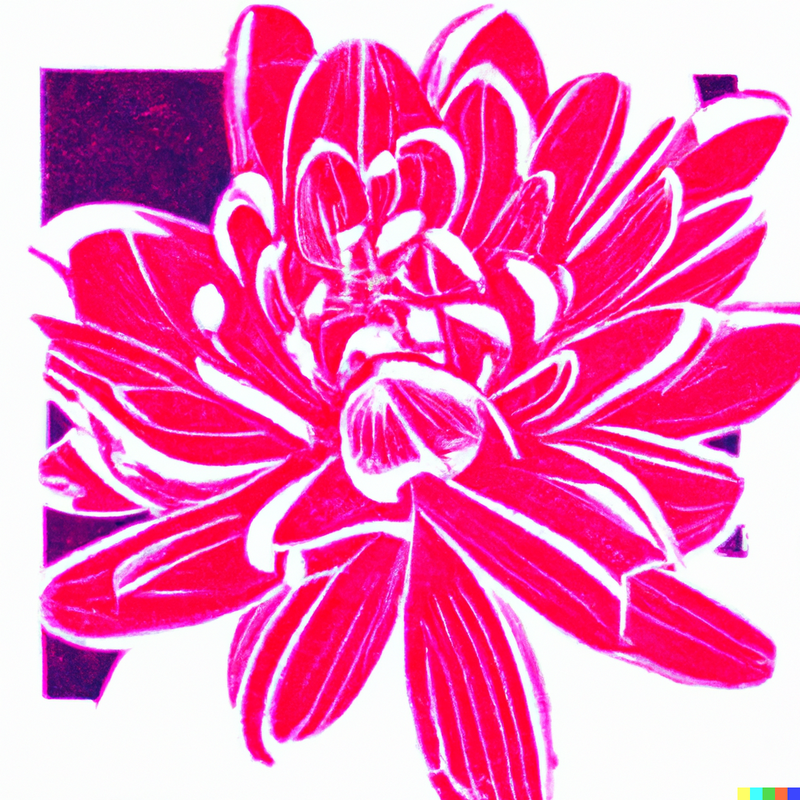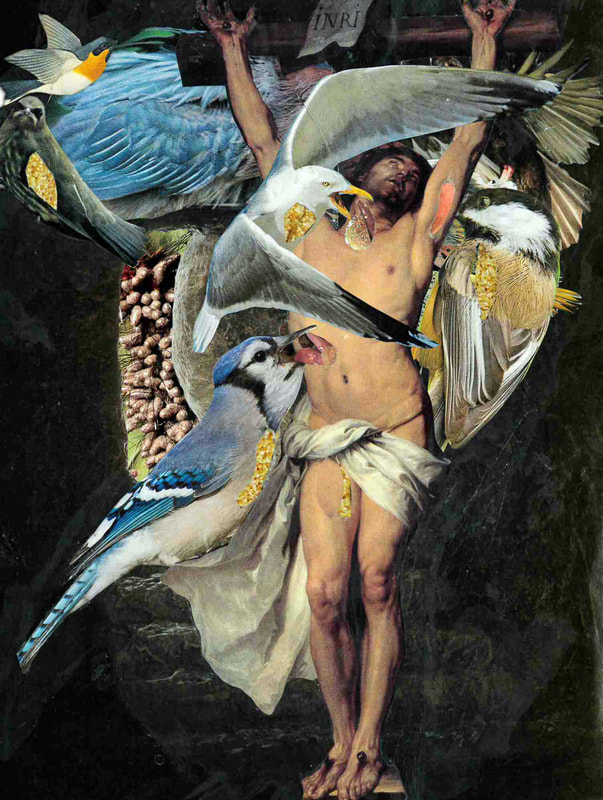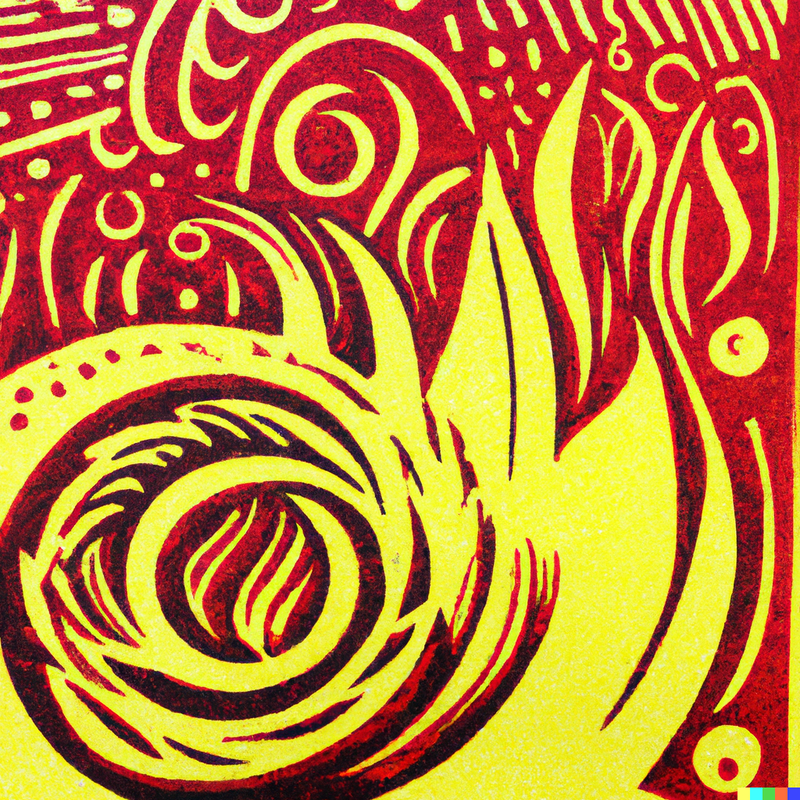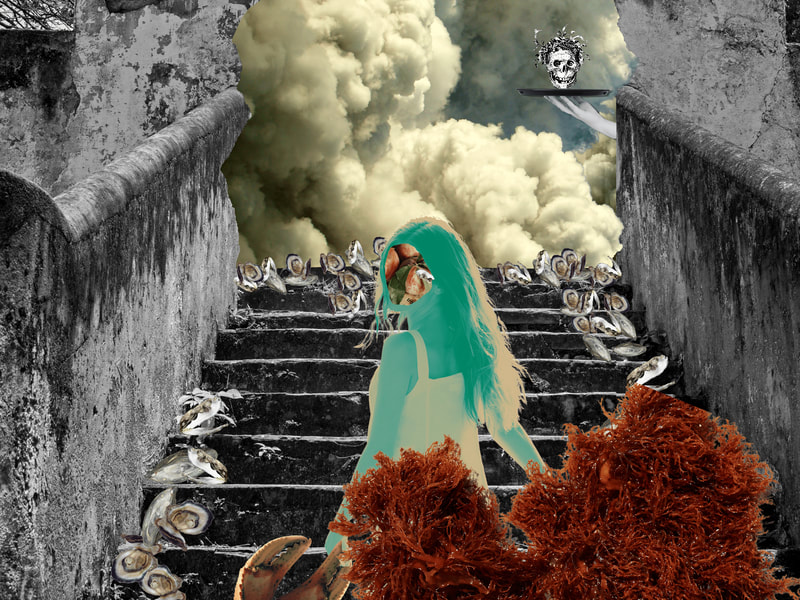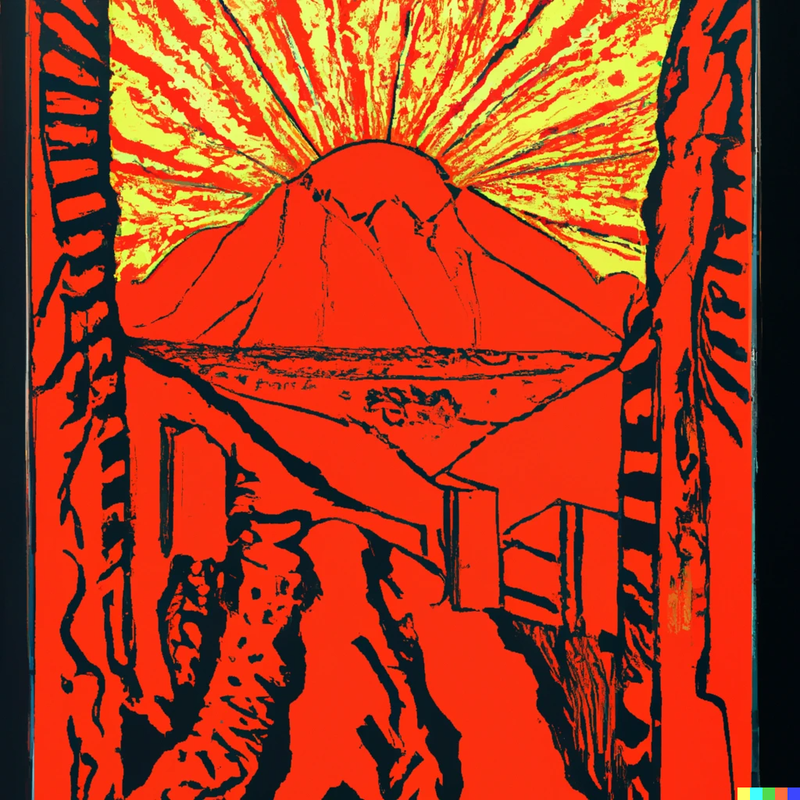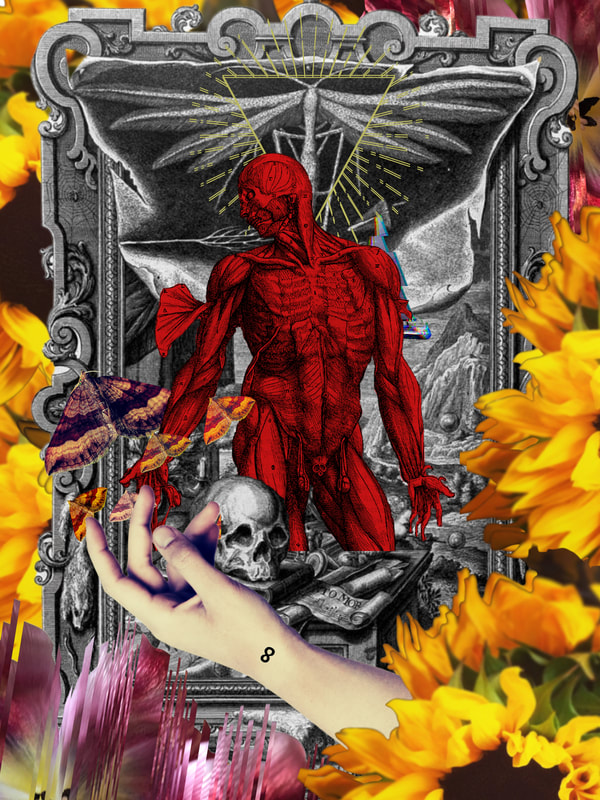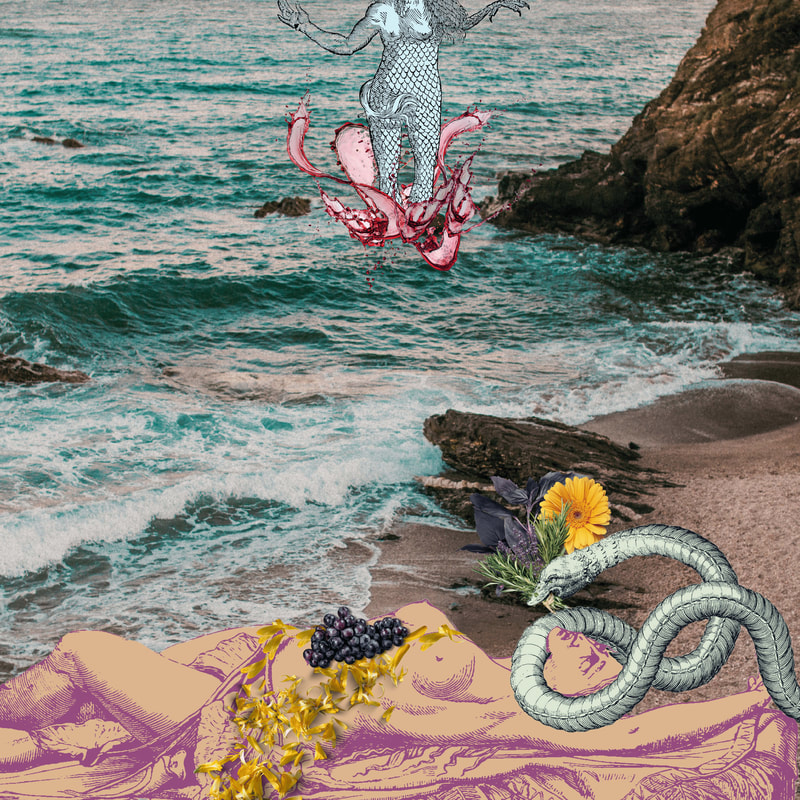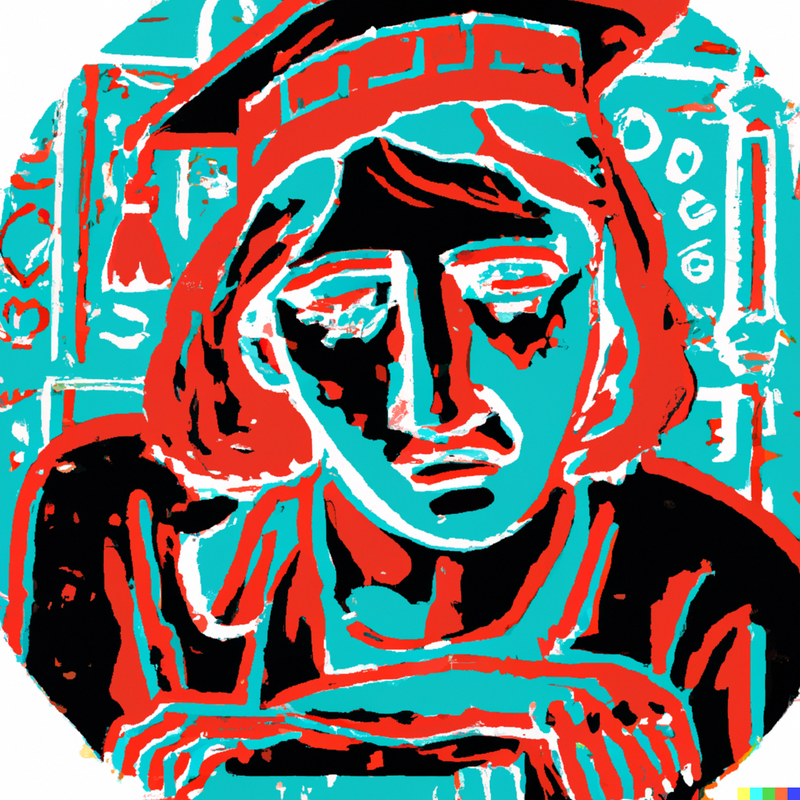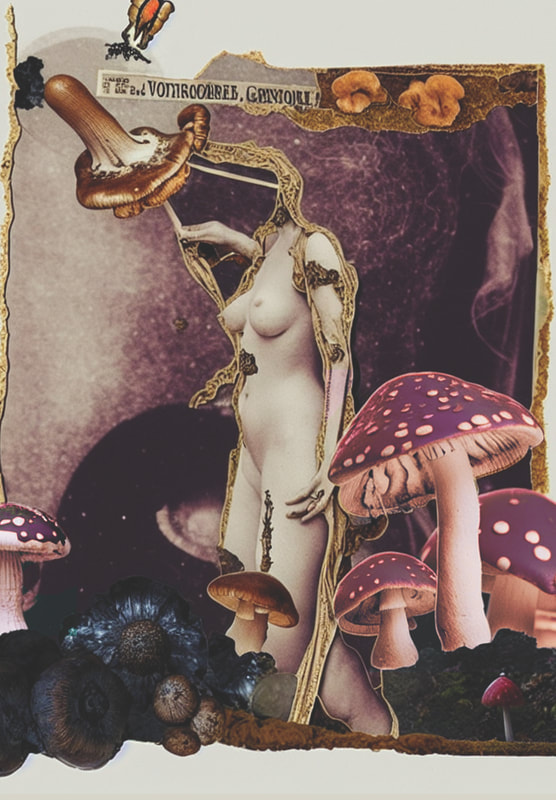Women :: Non-binary :: Art :: Fiction :: Poetry
January / February 2023
Dear Reader,
I didn’t want to write about this. I told myself that no one cares what I think, and it doesn’t matter anyway because so few people will read it. Also, I want people to like me, and I’m terrified of pissing off—well, everyone. I certainly don’t want people to think that I’m writing this for the attention. But here’s the thing: I’m continually surprised that so many white people still tell me how much they loved American Dirt. And I am surprised that WTR receives many submissions from white poets and fiction writers writing from the point of view of BIPOC folx.
As a white editor, I don’t think it’s my place to publish those pieces, and I’m not telling you this because I think I deserve a cookie. I’m writing this because maybe there are five white people out there who might read this and reflect, in a new light, on what they're writing—as I did.
Because I have written these poems. It began when I learned about Biddy Mason, a Black, enslaved woman who fought for her freedom in California, worked as a midwife and nurse, and became a wealthy philanthropist in Los Angeles. I read about Mason in 2006, and I wrote a persona poem in her voice, and it was published.
I felt I’d been given permission. I want to say I hadn’t been told that I shouldn’t appropriate the stories of BIPOC folx, but that wouldn’t be true. My justification was my impatience. Mason’s story couldn’t wait to be told, and what if I tried really hard to get it right, really researched the topic, and what if no one else ever writes about Biddy Mason and her life is kept a secret forever?
Reader, her life is not a secret.
I didn’t stop with Mason. Following the same reasoning, I went on to write several more persona poems from the perspectives of BIPOC women.
Then one day, after feeling uncomfortable about it for a long time, I imagined that there was an issue I knew particularly well from personal experience, and then I imagined that I’d been writing about this topic for years, but no one would publish my work, not because the writing was bad but because it didn’t fit the editors’ narrow definition of good, or because it wasn’t deemed palatable to people who hadn’t lived what I’d lived. Then I imagined that I spent all that frustrating time watching other people who knew nothing about my lived experience get book deal after book deal, win awards, appear on Oprah.
Yep, in order to have a better idea of where BIPOC writers are coming from, I had to make it about me, and I know how messed up it is that I had to make it about me, but I’ve stopped writing those poems. I’m sorry I wrote them.
Still, I do want my writing to be inclusive, and I think the only way forward, for me, is collaboration, and if I don’t know any BIPOC writers who are willing to collaborate with me, I need to ask myself why that is.
If I’m wrong about anything I’ve written here, I hope someone will call me out on my bullshit, but I also know it’s not anyone’s job to call me out on my bullshit, so in that case I hope I figure it out eventually, and then maybe (probably) I'll write about it some more.
For now, I am anxious that this editor’s note might overshadow the amazingness that is this issue of West Trestle Review. And it is amazing! We’ve got grandmothers and gratitude, fathers and sleepovers, and a study of the color pink. We've got Baryshnikov and Dickinson! Plus, so much more. This issue features horror-inspired digital collage by Kimberlee Frederick, poetry by Anne Anthony, Rebecca Brock, Cynthia Buiza, Geraldine Connolly, Catherine Cowie, Dorsey Craft, Elia Anie Kim, Sonia FL Leung, Yujia Li, Rachel Mallalieu, Erin Pesut, Sonya Schneider, Anannya Uberoi, Cheryl Waitkevich, and Joyce E. Young, with fiction by Sudha Subramanian.
And when I say we, I’m including WTR’s new fiction editor, DeMisty Bellinger, and new poetry reader, Katherine Huang. If you haven’t had a chance, send them a big welcome! We’re so happy they’re here.
If you fall in love with something you read in WTR, please give our contributors a shout out on social media. It’s always joyous to see our readers and contributors cheering for each other.
As always, WTR comes with a general content warning. Feel free to use one when sharing if it seems appropriate.
Onward,
Patricia Caspers
Founding EIC, West Trestle Review
I didn’t want to write about this. I told myself that no one cares what I think, and it doesn’t matter anyway because so few people will read it. Also, I want people to like me, and I’m terrified of pissing off—well, everyone. I certainly don’t want people to think that I’m writing this for the attention. But here’s the thing: I’m continually surprised that so many white people still tell me how much they loved American Dirt. And I am surprised that WTR receives many submissions from white poets and fiction writers writing from the point of view of BIPOC folx.
As a white editor, I don’t think it’s my place to publish those pieces, and I’m not telling you this because I think I deserve a cookie. I’m writing this because maybe there are five white people out there who might read this and reflect, in a new light, on what they're writing—as I did.
Because I have written these poems. It began when I learned about Biddy Mason, a Black, enslaved woman who fought for her freedom in California, worked as a midwife and nurse, and became a wealthy philanthropist in Los Angeles. I read about Mason in 2006, and I wrote a persona poem in her voice, and it was published.
I felt I’d been given permission. I want to say I hadn’t been told that I shouldn’t appropriate the stories of BIPOC folx, but that wouldn’t be true. My justification was my impatience. Mason’s story couldn’t wait to be told, and what if I tried really hard to get it right, really researched the topic, and what if no one else ever writes about Biddy Mason and her life is kept a secret forever?
Reader, her life is not a secret.
I didn’t stop with Mason. Following the same reasoning, I went on to write several more persona poems from the perspectives of BIPOC women.
Then one day, after feeling uncomfortable about it for a long time, I imagined that there was an issue I knew particularly well from personal experience, and then I imagined that I’d been writing about this topic for years, but no one would publish my work, not because the writing was bad but because it didn’t fit the editors’ narrow definition of good, or because it wasn’t deemed palatable to people who hadn’t lived what I’d lived. Then I imagined that I spent all that frustrating time watching other people who knew nothing about my lived experience get book deal after book deal, win awards, appear on Oprah.
Yep, in order to have a better idea of where BIPOC writers are coming from, I had to make it about me, and I know how messed up it is that I had to make it about me, but I’ve stopped writing those poems. I’m sorry I wrote them.
Still, I do want my writing to be inclusive, and I think the only way forward, for me, is collaboration, and if I don’t know any BIPOC writers who are willing to collaborate with me, I need to ask myself why that is.
If I’m wrong about anything I’ve written here, I hope someone will call me out on my bullshit, but I also know it’s not anyone’s job to call me out on my bullshit, so in that case I hope I figure it out eventually, and then maybe (probably) I'll write about it some more.
For now, I am anxious that this editor’s note might overshadow the amazingness that is this issue of West Trestle Review. And it is amazing! We’ve got grandmothers and gratitude, fathers and sleepovers, and a study of the color pink. We've got Baryshnikov and Dickinson! Plus, so much more. This issue features horror-inspired digital collage by Kimberlee Frederick, poetry by Anne Anthony, Rebecca Brock, Cynthia Buiza, Geraldine Connolly, Catherine Cowie, Dorsey Craft, Elia Anie Kim, Sonia FL Leung, Yujia Li, Rachel Mallalieu, Erin Pesut, Sonya Schneider, Anannya Uberoi, Cheryl Waitkevich, and Joyce E. Young, with fiction by Sudha Subramanian.
And when I say we, I’m including WTR’s new fiction editor, DeMisty Bellinger, and new poetry reader, Katherine Huang. If you haven’t had a chance, send them a big welcome! We’re so happy they’re here.
If you fall in love with something you read in WTR, please give our contributors a shout out on social media. It’s always joyous to see our readers and contributors cheering for each other.
As always, WTR comes with a general content warning. Feel free to use one when sharing if it seems appropriate.
Onward,
Patricia Caspers
Founding EIC, West Trestle Review
Art: Kimberlee Frederick and AI generated by DALL·E
View Kimberlee Frederick's full gallery here.
View Kimberlee Frederick's full gallery here.
Powered by Women
